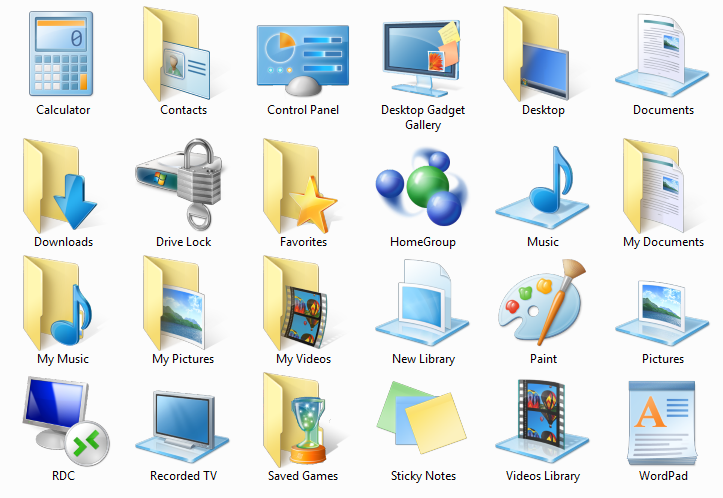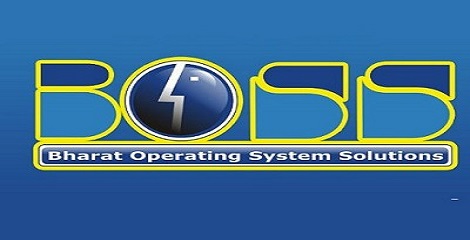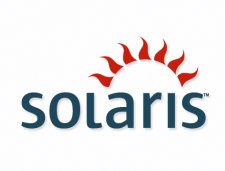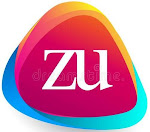4 Types of Operating Systems
Introduction
In this article, you will be able to know and learn about some essential terminologies, MCQ, and
Q&A that are frequently asked while learning and teaching some well-known Operating
systems.
Computer hardware
· Computer hardware refers to the physical or tangible parts of a computer.
·
Computer hardware is used for taking input data from the
user, storing the data and displaying the output, and executing the commands given by
the individual.
·
Computer hardware includes input, processing, output, and memory or storage devices.
·
Computer hardware includes CPU, RAM, motherboard, HDD,
graphics card, sound card, speaker, monitor, SMPS, UPS, LAN card, VGA, and
internal modem.
Software
· Software refers to a set of computer programs and associated documentation and data needed to operate computers and execute some specific tasks.
· Software is made available in the form of scripts, programs, and applications that run on a device or computer.
· Software can be physically stored on a hard drive or USB drive, or it can be cloud-based and hosted over the internet.
Interface refers
to the way in which users communicate with the computer.
System software
· System software refers to a type of
computer program designed to run a computer’s hardware and application programs.
· System software serves as the
interface between the hardware and user applications.
· Some common examples of system
software are computational science software, game engines, search engines, industrial
automation, compilers, interpreters, assemblers, and Operating systems like
macOS, Linux, Android, and Microsoft Windows.
Operating system
· Operating system refers to the program that is initially loaded into the computer by a boot program to manage all other application programs in a computer.
· Operating system acts as an interface between computer user and hardware.
· It is necessary to install at least one operating system to run some basic application programs like browsers, Notepad, Ms-Office, and games on the computer or mobile phones.
· Windows, Linux, and Android are some commonly used operating systems.
CLI Operating
system
·
CLI Operating systems are DOS, UNIX, and Linux.
Interactive Operating system
- The two sub-categories of interactive Operating systems are GUI, and touchscreen interface.
GUI
· GUI stands for Graphical User Interface.
· GUI refers to a form/type of user interface that allows users to interact with electronic devices or computers through the use of graphical icons, symbols, visual metaphors, audio indicators, and pointing devices.
· A GUI-based operating system uses icons, menus, and a mouse (to click on the icon or pull down the menus) to manage interaction with the system.
· A GUI is used for playing games, and watching videos because all these applications require graphics.
Touchscreen User Interface
· Touchscreen User Interface refers to a GUI operated by fingertips or a stylus.
· Touchscreen User Interface is a combined display /input device. The screen displays a graphical interface, and a user’s physical touching of the screen is interpreted as an input or interaction with the interface, at the point of contact.
· Touchscreen User Interface is interactive in nature and allows you to use your fingers to select icons and options on the screen.
· Touchscreen Interface can be a PC or laptop or a handheld device like a tablet, or mobile phone.
Some commonly used system software are:
·
Linux is a popular operating system.
·
Linux is CLI operating system.
·
Linux is free software and open-source development.
·
Linux is a part of the popular web server set of
program-LAMP (Linux, Apache, My SQL, and PHP).
Microsoft Windows
·
Microsoft window is a GUI operating system.
·
Microsoft window dominates the world of the personal computer
market.
·
Microsoft Windows 10 is the most recent client version of
windows.
Some essential Microsoft Windows 10 features are:
Desktop
Recycle bin
Recycle bin refers to a temporary storage folder for deleted files, where the deleted files are stored until deleted permanently.
Taskbar
· The taskbar refers to the access point for programs displayed on the desktop.
· The taskbar provides access to all the apps, settings, files, and information on the computer.
· The taskbar is at the bottom of the desktop screen.
· The taskbar displays icons for commonly used apps, search box, and the open applications on your computer.
Documents
· In computing, a Document is a type of file that has been created by a particular software application and can be manipulated by that application.
· In general, a document is a paper with written contents.
· A document refers to a permanent record of information that can be retrieved at some later time by a user.
· A document is required to preserve the contents for a longer period or to be used as evidence.
· A document or document file describes an electronic copy or hard copy of reference material for a product.
· Documents may contain text, pictures, audio, and video.
· The document can be letters, reports, thesis, manuscripts, legal documents, and books.
File
· File refers to a computer resource for recording data in a computer storage device, identified by a filename.
· A file is the common storage unit in a computer, and all the programs and data are “written or stored” into a file and read from a file.
· A file can be a document, picture, audio or video stream, data library, application, or other collection of data.
Folder
· Folders are also called directories.
· A folder refers to a container that holds one or more files.
· A folder can contain other folders.
· Folders provide a method for organizing files.
Subfolder
Subfolder refers to a folder stored inside another folder.
Multilevel or hierarchical directory system
Multilevel or hierarchical directory system refers to the organized file structure.
Clipboard
· Clipboard refers to the temporary memory buffer in RAM provided by the operating system to store short-term data in a computer application.
· Clipboard is used to temporarily hold copied or cut data while transferring within and between application programs.
BOSS Linux
·
BOSS Linux stands for Bharat Operating System solutions.
·
BOSS Linux is an Indian distribution of GNU/Linux based on Debian.
·
BOSS Linux consists of the Linux operating system kernel,
office application software suite Bharteeya OO, Firefox web browser,
Thunderbird (e-mail), Pidgin (Chat), file sharing/converter, and multimedia
applications.
Solaris
· The Solaris operating system is a free Unix-based operating system.
·
The Solaris operating system is the product of Sun Microsystems.
MCQ
GUI Operating systems
were first created by ...................................
a. Xerox*
b. Apple
c. Windows
d. None of these
CLI stands for
..............................
a. Command Line Interface*
b. Common Line Interface
c. Both a & b
d.
All of these
GUI stands for ...............................
a. Graphical User Interface*
b. Graphical utility
Interface
c. Both a & b
d.
All of these
........................
are examples of CLI Operating systems.
a. DOS
b. UNIX
c. LINUX
d.
All of these*
........................
are examples of GUI Operating systems.
a. MAC Operating
system
b. Windows Operating
system
c. Both a & b*
d.
All of these
........................
are examples of touch screen interface Operating
systems.
a. Windows 8
b. Windows 10
c. Android and iOS
d.
All of these*
........................
are the different types of Operating system interfaces.
a. CLI
b. Interactive Operating
system interface
c. Both a & b*
d.
All of these
...................
are the two categories of Interactive Operating system interface.
a. GUI
b. Touch screen interface
c. Both a & b*
d.
All of these
........................
are examples of modern portable devices that use touch screen interface and technology.
a. Mobile phones, PDA’s
b. Tablets, modern
car dashboards
c. Modern cockpits
d.
All of these*
Which of the following
is a commonly used operating system?
a. Microsoft windows
b. Linux, BOSS Linux
c. Solaris, Mobile operating
system
d.
All of these*
Which of the
following is a commonly used mobile operating system?
a. Android
b. Apple iOS
c. Both a & b*
d.
All of these
Q & A
Write the main feature of the Interactive Operating
system interface.
Interactive
Operating system interfaces allow users to give commands without typing, using
pointing, or touching.
Write the main
feature of GUI.
The main features
of GUI are:
·
WIMP (Windows, Icons, Menus, and Pointers) makes GUI Operating systems interactive.
·
GUI feature helps to move and easy interaction to the
user.
·
GUI feature uses mouse or trackpad/ trackball.
·
GUI Operating system requires much more RAM compared to
the CLI.
Write the main
features of the touch screen interface.
The main features
of the touch screen interface are:
·
Touch screen interfaces are interactive in nature.
·
Touch screen interface provides access via touch on the screen.
·
Touch screen interface includes some finger-based gestures
like pinching the screen, rotating the screen, and swiping on the screen.
·
Some touch screen interface devices are mobile phones, PDAs,
tablets, modern car dashboards, and modern cockpits.
To know more visit https://zueducator.blogspot.com














No comments:
Post a Comment